第6章 Undated(1)
To the Rev.J.Jowett (ENDORSED:recd.Sept.26th,1833)ST.PETERSBURG,No.221GALERNOY ULITZA.
[Undated.]
REVD.AND DEAR SIR,-My last letter was from Hamburg,which I hope and trust you received.I started from thence on the 24th,and embarking at Travemunde I arrived at the Russian capital on the 31st July (old style)after an exceedingly pleasant passage,accomplished in the short space of 72hours;for the wind was during the greatest part of our way favourable and gentle,the sea being quite as smooth as a mill pond,so that the paddles of our noble steamer,the NIKOLAI,were not at all impeded in their working by any rolling or pitching of the vessel.Immediately on my arrival I sought out Mr.Swan,one of the most amiable and interesting characters I have ever met with,and delivered to him your letter,the contents of which were very agreeable to him;for from applying himself too un-interruptedly to transcribing the manu of the Mandchou Old Testament he had in some degree injured his health;and the arrival of a coadjutor in the task was exceedingly opportune.In a day or two I went with him to pay a visit to Mr.Schmidt,who resides a few miles out of town.He assured us that he had no doubt of permission being granted for the printing of the Mandchou New Testament,and promised to make all the necessary inquiries,and to inform Mr.Swan and myself of the result.He was at the time we saw him much occupied with his Mongolian Grammar and Dictionary,which are in the press.We have not heard from him since this visit,and I shall probably call upon him again in a week or two to hear what steps he has taken.Iresided for nearly a fortnight in a hotel,as the difficulty of procuring lodgings in this place is very great,and when you have procured them,you have to furnish them yourself at a considerable expense.During this time I collated with Mr.Swan the greatest part of what he had transcribed,and eventually I took up my abode with Mr.Egerton Hubbard,a friend of Mr.Venning's,where I am for the present very comfortably situated,and I do assure you exerting myself to the utmost to fulfil the views of the Society.I have transcribed from the Mandchou Old Testament the second book of Chronicles,which when I had done,I put aside the Old Testament for a season,and by the advice of Mr.Swan began to copy St.
Matthew's Gospel from the version of the New,executed by the same hand as the Old,with the purpose of comparing it with that of Mr.
Lipoftsoff.This task I have just completed,and am now about to commence a tran of the Acts.Respecting this manu translation of the Old and New Testaments I must here observe,that with scarcely one exception it is the most laborious and best executed work of the kind which I have ever seen,and I cannot but admire the diligence and learning of him who,probably unasked and unrewarded,engaged in and accomplished it.The style,as far as Ican judge,is to an eminent degree elegant and polished,and likely to captivate those whose taste is cultivated,and with this advantage,it exhibits none of that obscurity which too frequently attends refinement of language;and as for fidelity -it is upon the whole executed as literally,and with as much adherence to the original,as the genius of the Tartar language and the understandings of the people,for whose edification it is intended,will permit.But the notes and elucidations (which I copy not)which follow every chapter,both of the Old and New Testament,constitute the most surprising feature of this work.They are so full and copious,that they occupy far more space than the text;indeed,I think I speak quite within bounds when I say that for every page of text there are two of explanatory matter.The author was a French Jesuit,and when did a Jesuit any thing which he undertook,whether laudable or the reverse,not far better than any other person?Staunch Protestant though I be,I am not ashamed to say that all the skill and talent of our own missionaries,in acquiring languages and making versions of the Scriptures,are,when compared with the capabilities displayed by the seminary priests,faint and seemingly insignificant;and yet it is singular enough that the labours of the latter in this line have had almost invariably no other fate than to be buried in continental public libraries or in the literary collections of the learned and curious;from which it is manifest that the Lord smiled not upon their undertakings.They thought not of His glory but of the glory of their order,and the consequence has been that 'He has put down the mighty from their seat and has exalted the humble and meek.'